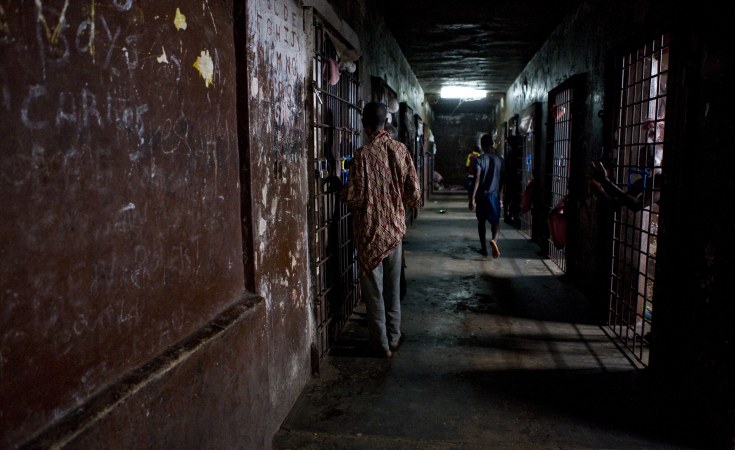Monrovia — The Liberian government has rejected criticism of conditions in its prisons made by an international human rights group.
In an emotional response to the report by London-based Amnesty International, the Assistant Minister of Justice for Corrections, Hillary Siakor-Sirleaf, raised eyebrows in a ceremony Wednesday by accusing Amnesty monitors of "illegally" entering the prisons to take photographs.
"I don't know how you got your pictures because I don't allow photographing in any of our prisons... where is your code of ethics?" he said. To this, Amnesty's deputy director for Africa, Tawanda Hondora, said the pictures were already in the public domain. "A Google search will throw them up," he said.
The widely-publicized document, entitled Good Intentions Are Not Enough: The Struggle to Reform Liberia's Prisons, was presented at the Ministry of Justice in Monrovia. In it, Amnesty said conditions at some of the country's prisons violate the basic human rights of inmates.
The report describes appalling conditions in four of Liberia's 15 prison facilities. Amnesty said its delegates visited the prisons "more than once" and found severe overcrowding, inadequate health services, inadequate food and drinking water, poor hygiene and inadequate light and ventilation.
It acknowledges that many ordinary Liberians face similar issues. "However, prison inmates are under direct state control and completely dependent on the state to meet their most basic needs," the report said.
Siakor-Sirleaf said the report failed to capture some of the improvements made in recent years. He contested many of the document's highlights, saying they were "magnified" and "not substantiated".
He admitted not all prisons have clinics, as pointed out in the report, but said doctors are brought in regularly. "For example in Voijama, [doctors] come twice a week to treat the prisoners."
Sirleaf said that Liberia only recently came from a "degrading" war and was still struggling to get back on its feet.
Pressed by journalists during his presentation of the report, Hondora pointed out that Amnesty is not accusing the government of deliberately violating the inmates' rights. "All we are saying, the conditions such as they are, violate their rights... we are not in the blame game here."
He praised the government for steps taken so far to improve conditions of the prisons, but said more needs to be done "irrespective of resource constraints" to meet basic standards. He commended officials of the justice ministry for their co-operation saying that in other countries, it "often doesn't happen".
Hondora also faced tough questioning from some government officials in the room, who pressed him on how Amnesty International came to some of its conclusions.
Siakor-Sirleaf said prisoners were fed twice a day, contrary to what the report says. "How many of you have the luxury of eating twice," he asked rhetorically. He said prison administrators are digging wells and building towers to supply water to every cell at the Monrovia Central Prison, but "the report failed to capture that".
Siakor-Sirleaf also said the report failed to mention the fact that the Ministry of Justice has been working with the International Committee of the Red Cross to give first aid training to corrections officers.
Overcrowded prisons aren't unique to Liberia, he added.


